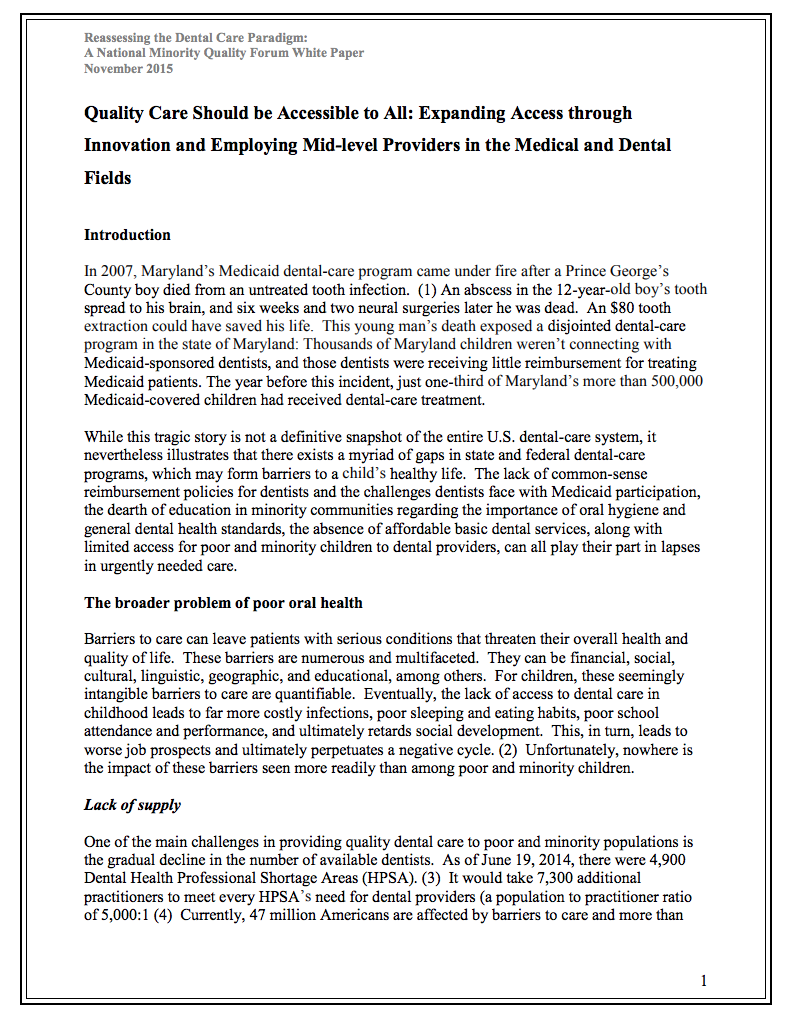
January 20, 2026
By Victor Mejia Lacayo
Audio Recordings: Native Community Perspectives from Lumbee Tribe Powwow – September 2025
Read More

In 2007, Maryland’s Medicaid dental-care program came under fire after a Prince George’s County boy died from an untreated tooth infection. An abscess in the 12-year-old boy’s tooth spread to his brain, and six weeks and two neural surgeries later he was dead. An $80 tooth extraction could have saved his life. This young man’s death exposed a disjointed dental-care program in the state of Maryland: Thousands of Maryland children weren’t connecting with Medicaid-sponsored dentists, and those dentists were receiving little reimbursement for treating Medicaid patients. The year before this incident, just one-third of Maryland’s more than 500,000 Medicaid-covered children had received dental-care treatment.
While this tragic story is not a definitive snapshot of the entire U.S. dental-care system, it nevertheless illustrates that there exists a myriad of gaps in state and federal dental-care programs, which may form barriers to a child’s healthy life. The lack of common-sense reimbursement policies for dentists and the challenges dentists face with Medicaid participation, the dearth of education in minority communities regarding the importance of oral hygiene and general dental health standards, the absence of affordable basic dental services, along with limited access for poor and minority children to dental providers, can all play their part in lapses in urgently needed care.
Annual Report
Annual Report
Read More →
Annual Report